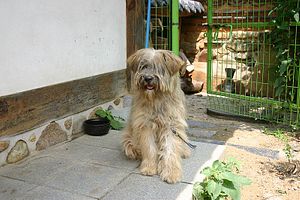According to the latest poll conducted by South Korea’s Animal and Plant Quarantine Agency last year, 55.7 percent of respondents hope to use animal cremation facilities when their pets die. Based on the result, the agency projected that about 7,054 pets will need to be cremated annually.
As the number of people raising pets increases in South Korea, the need for animal cremation facilities is also growing.
The issue is that there are currently only 33 authorized cremation facilities across the country. Furthermore, such facilities are perceived as an abomination and often face resistance from nearby residents even before they enter the area.
In January, for instance, residents in the city of Okcheon in North Chungcheong province held a massive protest to stop the local government’s plan to introduce an animal cremation facility. The city had no choice but to scrap the plan.
Okcheon City is not alone. Another South Korean city, Gimhae, recently announced that it would reduce the scale of animal cremation facilities it had planned to install. The city initially planned to invest about 5.8 billion South Korean won ($4.9 million) to build such facilities. However, after facing backlash from residents, the city changed its plan and is now seeking a new location, which is likely to be smaller.
Gimhae’s government attempted to hold a hearing to gather public opinion on the issue, but residents refused even that.
Gimhae city is the site of a long-running conflict between residents and private animal cremation facilities operators. There are a total of five private cremation facilities up and running across the city.
The original logic behind the city’s plan was to build a large-scale, government-backed animal cremation facility to meet demand not only from Gimhae itself but also neighboring towns — all while discouraging private players from attempting to make a foray into the city. The plan came after Gimhae city won government-backed funding in July last year to build such facilities.
The imbalance between demand and supply when it comes to animal cremation has resulted in the proliferation of unauthorized players.
That includes mobile animal cremation services. Services providers remodel vans or trucks by installing cremation devices and make house calls to customers who want their pets to be cremated. It is estimated that there are around 10 such service providers up and running.
Under South Korea’s animal protection law, animal cremation service providers are required to register with local governments as an “animal funeral service.” In order to register, they should meet specific requirements, such as the installation of facilities to prevent noise, smoke, dust, and odor.
While unauthorized providers can face fines of up to 5 million South Korean won ($4,300), they continue to operate even after being fined as they can quickly restore what they lost by serving the flood of customers.
Customers for these unauthorized services cite “accessibility” and “cost” as reasons for using them.
The existing 33 authorized facilities mostly are located in the outskirts of cities. And some of South Korea’s major cities – such as Seoul, Incheon, and Ulsan — don’t have any authorized animal cremation services at all.
Meanwhile, it costs up to 500,000 South Korean won ($430) to use authorized cremation services, but mobile services tend to charge less.
Recognizing the issue, South Korea’s Ministry of Agriculture, Food, and Rural Affairs plans to conduct a series of inspections and crackdowns on unauthorized animal cremation services in association with local governments. The ministry has discussed how to tackle the issue since December last year.
It is promising to see the government to take action, but still there are no concrete moves to deal with the lack of animal cremation facilities, which is the leading cause of the issue.
































